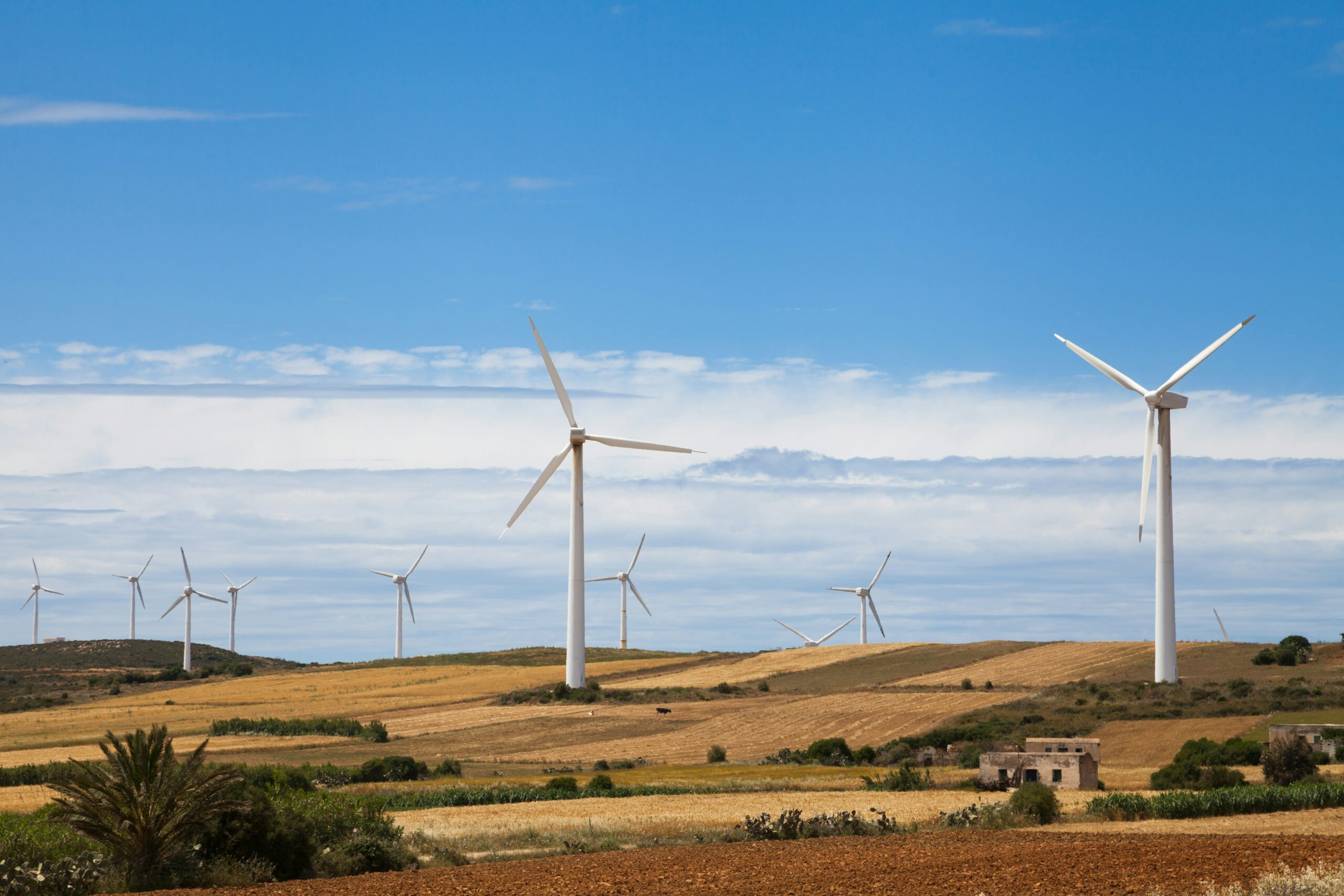Insider Brief
- Venture investment in climate technology is projected to reach $26 billion in 2024, with funding focused on scalable solutions in energy storage, electrification, and emissions reduction, according to J.P. Morgan’s latest report.
- Battery and grid technology, clean mobility, and food and agriculture technology are the highest-funded sectors, reflecting demand for electric vehicle infrastructure, energy efficiency, and sustainable food production.
- Climate tech startups face unique funding challenges, particularly for large-scale infrastructure projects, with many relying on a mix of venture capital, government incentives, and specialized financing to reach commercialization.
Venture funding in climate technology is holding steady, with U.S. investment projected to reach $26 billion by the end of 2024, according to a new report from J.P. Morgan’s Innovation Economy team. Despite economic uncertainty, funding for startups tackling emissions reduction, renewable energy and electrification remains active, with investors focusing on technologies that are closer to commercial adoption.
The report, led by Kelly Belcher, head of climate technology at J.P. Morgan’s commercial banking division, outlines key investment trends in six areas: battery and grid technology, clean mobility, food and agriculture, the built environment, industrial technology, and decarbonization. Analysts Nick Candy, Julie Tsang, and Vincent Harrison contributed to the findings, which, overall, points to a maturing market that prioritizes scalable, cost-effective solutions.
“Climate technology, or climate tech, is an important part of advancing the transition to a low carbon economy. Climate tech enables companies to decarbonize operations via transformative innovations, such as sourcing renewable energy, intelligently managing energy use and transitioning to electric fleets,” writes Belcher.

The Money Behind Climate Tech
Startups developing climate technology have seen fluctuating but persistent funding levels over the past decade. Venture investment peaked in 2021 at $75.4 billion but has since cooled, reflecting broader market conditions. However, climate-focused startups continue to attract capital, with investment levels stabilizing above pre-pandemic figures. The report notes that clean mobility and battery technology remain the most well-funded sectors, reflecting the continued shift toward electric vehicles (EVs) and energy storage.
Clean mobility sector includes electric vehicle (EV) charging, clean mobility original equipment manufacturers (OEMs), clean mobility components, fleet electrification, shared mobility and marine mobility, according to the report. The team also places battery recycling, lithium mining, battery production, grid technology and battery management systems (BMS) in the battery technology sector.
J.P. Morgan analysts emphasize that investment strategies vary depending on a startup’s stage. Early-stage companies focus on demonstrating feasibility, while more mature startups seek funding for commercialization and scaling production.
“Financing is key to realizing these technologies and is unique to each startup: it is based on the company’s stage of development, industry dynamic, and operational needs,” Belcher wrote in the report.
Many companies rely on a mix of venture capital, project finance, and government incentives to bring their solutions to market.
Sector Highlights
The report breaks down the state of funding across six industries:
- Battery and Grid Technology: Investments in energy storage and grid modernization could reach $6.5 billion in 2024, largely driven by demand for electric vehicle batteries and improvements in grid reliability. Battery production has accounted for more than a third of the sector’s total funding over the past decade. Lithium mining investments have also risen as companies seek materials for next-generation batteries.
- Clean Mobility: Despite a slowdown from 2021 highs, investment in electric vehicle infrastructure and sustainable transportation is set to hit $5.8 billion this year. EV charging networks and fleet electrification remain priority areas, with increasing focus on charging accessibility and operational efficiency.
- Food and Agriculture Technology: Investment in alternative proteins, indoor farming, and precision agriculture is projected to reach $9.8 billion in 2024. Innovations in satellite-based farm monitoring and autonomous farming equipment have contributed to rising investor interest.
- Built Environment: Startups in smart building management, sustainable construction materials and water efficiency are expected to receive $1.9 billion in funding this year. The push for energy-efficient commercial and residential buildings has made smart automation a growing area of focus.
- Industrial Technology: Companies working on sustainable manufacturing methods and recyclable materials are projected to attract $1.1 billion in funding. J.P. Morgan analysts highlight the rising demand for green manufacturing solutions, such as electric furnaces and circular economy models.
- Decarbonization Technology: Startups focusing on emissions tracking, carbon utilization, and climate adaptation technologies could receive $2.5 billion in funding this year. Businesses are increasingly seeking tools to measure and reduce emissions, particularly for methane monitoring and carbon reuse applications.
The Path to Market
One of the key takeaways from the report is that funding strategies for climate technology differ from other venture-backed industries. Capital-intensive technologies, particularly those that require large-scale infrastructure, face unique hurdles in raising funds. The report highlights “First-of-a-Kind” (FOAK) projects –early commercial-scale implementations of new technologies — as a critical stage where companies struggle to secure investment. J.P. Morgan’s report further notes that traditional venture capital funding may not always be suitable for these companies, as the timeline to profitability can be longer than in software or consumer technology.
The analysts write: “How a startups funds its operations varies and is specific to its unique circumstances; often, a combination of different funding types may be required. This is especially true for first/early-of-a-kind (FOAK/EOAK) projects, which are designed to implement and test new technologies at a commercial scale, often requiring diverse funding strategies to address the unique challenges involved. Companies generally build their first commercial-scale facilities – often FOAK projects – when raising their Series C round. They may also have access to revolving lines of credit (revolvers) and Asset-Backed Lending (ABL) facilities. Given the uncertainty of cash flows around FOAK projects, project financing is not usually an option. Instead, companies may rely on a mix of revolvers/ABLs and grants (government and private). However, it’s important to understand that there isn’t a standardized way to fund capital-intensive, Climate Technology companies.”
Policy and Market Forces
The report also acknowledges the role of government policies in shaping climate technology investment. Regulations that mandate emissions reductions, incentives for clean energy adoption and rising utility costs are all factors driving corporate interest in sustainability solutions. The impact of extreme weather events has also heightened awareness among businesses, pushing more companies to invest in climate adaptation technologies.
Consumer demand is another driving force. The shift toward sustainable products has prompted corporations to seek out greener manufacturing processes, while rising electricity prices have made energy efficiency more attractive for businesses. As a result, the adoption of decarbonization technologies is expected to increase.
The Future of Climate Tech Investment
While venture investment in climate technology has moderated from its 2021 peak, the J.P. Morgan report suggests that capital will continue flowing into the sector, particularly for solutions that are closer to commercialization. The emphasis is shifting from experimental projects to scalable applications that can drive measurable emissions reductions.
Belcher notes that supporting climate technology founders remains a priority. Investors are now looking for startups with clear paths to profitability, strong market demand and scalable deployment models.
“It’s exciting to support founders developing cutting-edge technologies that address climate change and promote a more sustainable future,” Belcher wrote.








